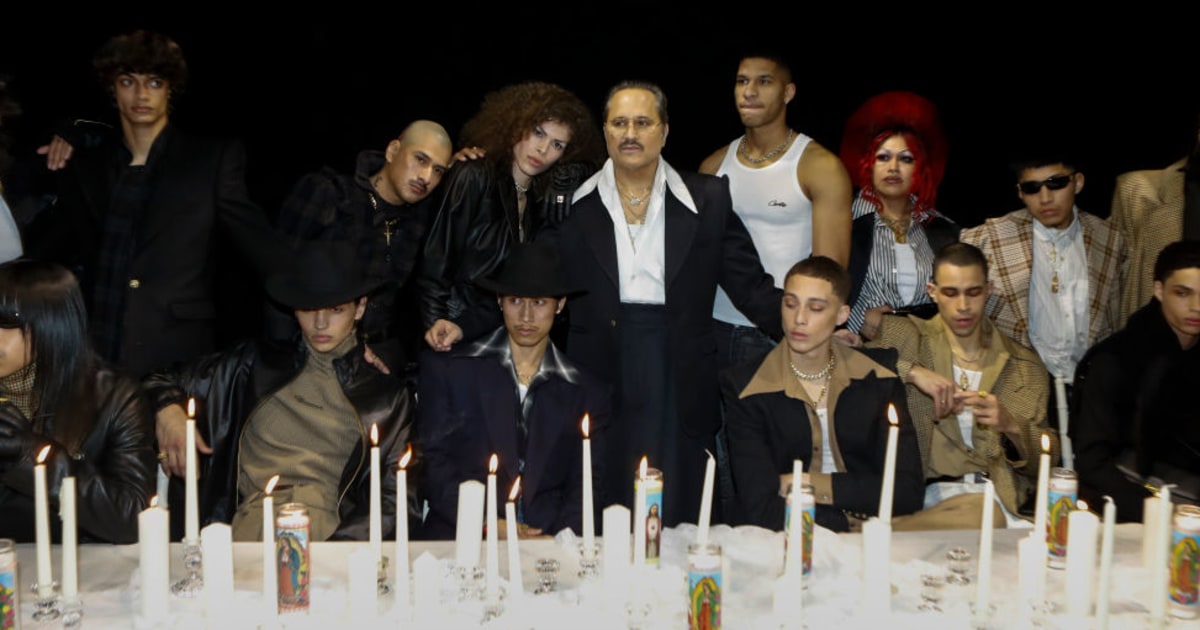Welcome to Axios Latino, a newsletter to tell you every Tuesday and Thursday the stories that have a special impact on the Latino communities in the United States and in Latin America. If you are interested in subscribing and receiving the newsletter in your email (
in English
), you can do so
by clicking here
.
You will always find it in Spanish on Noticias Telemundo.
1 topic to highlight: Silencing Latino books and voices
As Latino authors make their way
into the American literary industry, especially in the young adult genre, their works are facing threats of ban from school boards and libraries because they address issues of racism and sexuality.
Why it matters
: The backlash against their diverse voices and the issues they address for a young audience has put these authors at the center of heated discussions about educational materials and racial issues.
Sarah Grillo / Axios
Banning their works from libraries or schools would make reading about and contemplating those Latino experiences less accessible than those of non-Hispanic white authors and publishers, who are the majority in the industry.
The bans are especially focused on young adult fiction, a genre that is also increasingly promoted outside of schools, on platforms such as Instagram or TikTok.
The genre is also one of those that has diversified the most, slowly but surely, especially with works of science fiction and fantasy with non-white voices.
What's Happening
: Books by authors like Elizabeth Acevedo, Benjamin Alire Sáenz and others have been on the lists of books removed from shelves or restricted by librarians, school authorities, parents or local politicians in recent years.
The cover of the second novel in the Aristotle and Dante series Courtesy of Editorial Planeta
Two works Acevedo were listed in a single year:
The Poet X
, novel in winning verse of the National Prize of the Book 2018 Juvenile Literature, and
Clap When You Land
(
Applauds when you
land),
novel also in verse published in 2020 on stepsisters who find out about each other when their father's plane crashes.
Both works are focused on Afro-Latin protagonists, and deal with topics such as religion and sexual orientation.
The lyrical novel by Alire Sáenz
Aristotle and Dante discover the secrets of the universe
has also been subject to censorship.
It is about two gay Mexican-American teens in El Paso in the 1980s. It has a newly released sequel and is being adapted into a movie.
The English novel, and its Spanish translation, were included in a recent list of 850 works that Texas legislator Matt Krause suggested should not be available in state schools.
Out of Darkness,
by Ashley Hope Pérez, has also become a target of conservative parents who oppose it being available on shelves due to a sex scene between the protagonists, a Mexican girl and a black teenager.
Beyond fiction:
Recent work as nonfiction
For Brown Girls with Sharp Edges and Tender Hearts
(
For brunettes sagacious girls with tender hearts),
one
memoir that also serves as antiracism guide, and the collection of essays
Wild Tongues Can not Be Tamed
(
Wild languages can not be tamed)
could also embarrass possible censors with silencing criticism Latino voices and stereotypes.
2. An Andean vote with global impact
The future president of Chile
will be decided between two extremes of right and left after the first round of voting on Sunday, where the traditional candidates from the political center were left out of the ballot.
The left and the far right are consolidated as favorites in the elections in Chile
Nov. 22, 202100: 21
Since its return to democracy in 1990, Chile has always oscillated between center-left and center-right presidents.
Gabriel Boric, a 35-year-old leftist congressman and former student leader, will face José Antonio Kast, a 55-year-old ultra-conservative lawyer who has defended the Augusto Pinochet dictatorship.
Why it matters
: The result of the second round on December 19 will also have repercussions on how Chile's economy is managed, for which global resources such as copper are key.
Boric defends raising taxes on companies, reforming the pension system and increasing state intervention in environmental regulations, including for the state mining company Codelco.
Kast is proposing to privatize that company and possibly increase export taxes or copper production royalties, which could increase the price of that metal.
Chile is the world's largest producer of copper and the second largest of lithium, both key for electronics and for the manufacture of renewable energy technologies.
In context
: The Andean nation is the most economically advanced country in Latin America and the Caribbean, although it is still plagued by socioeconomic inequalities.
Tensions over those inequalities came to a head with massive protests two years ago, which led to a constitutional review process.
Chile is currently governed by the 1980 Constitution, drawn up during the Pinochet regime.
Critics say it is an excessively rigid law, especially on social issues.
The constituent convention has tabled progressive proposals whose future could depend on who is elected in December.
3. Young Latinos report discrimination more
Young Latinos in the United States
are
more likely to
speak out against discrimination and report incidents, such as being insulted by people telling them to “go back” to their country, than older Hispanics, according to a Pew survey.
Why it matters
: The survey suggests that younger generations are far less willing to endure assault as the United States increasingly reflects on racial and ethnic inequalities.
Latinos under the age of 50 are also more likely to say that racial and ethnic issues for Hispanics receive very little attention in the country, and to criticize friends or family who make racially or ethnically insensitive comments.
Skin color tone could affect daily life for Latinos, study finds
Nov. 8, 202102: 35
In numbers
: The Pew survey also looked at how Latinos feel that their daily experiences change based on their skin tone, which varies given that Latinos are multiracial.
62% stated that they feel that colorism (prejudice towards people with a darker skin tone) affects them and they feel that their dark skin is an impediment to get ahead.
And 59% consider that it helps to have clearer skin to advance in work, education and more.
The survey also offers a glimpse into colorism within the same community: 41% of Latinos with darker skin mentioned that another Latino person had treated them unfairly or discriminated against them.
In contrast, 25% of Latinos with lighter skin color said the same.
4. A recognition of Latino civil activism
The League of United Latin American Citizens
(LULAC) released this month an extensive chronology of legal battles, union formation, and political strategies used to advance the civil rights of Latinos in the United States.
One of the entries in the LULAC timeline shows an advertisement that hung about businesses in Texas in the 1930s, which reads: "We only serve whites, not Hispanics or Mexicans." Courtesy of LULAC
Why It Matters
: The organization's timeline was unveiled when discussing the marginalization that Latinos still face in the United States, including health care and structural inequities on issues such as wages.
"Non-Latinos and the younger generation are unaware of what our grandparents and parents had to do to break down barriers."
Domingo García, PRESIDENT OF LULAC
Details
: The interactive timeline is a compilation of historical records, artwork, and photographs documenting the struggle for Latino civil rights for nearly a century.
It includes documents on legislation that discriminated against Latinos, known as Juan Crow laws in reference to Jim Crow discrimination laws against black people.
The measures restricted access to public spaces, such as swimming pools, bathrooms and drinking fountains.
LULAC also documented a large number of successful lawsuits to integrate Texas school systems, which segregated Mexican children until 1945 on the grounds that they were "less dressed and mentally inferior to white children."
5. Summary of key news in Latin America and the Caribbean
Salvadoran President Nayib Bukele
has redoubled his commitment to cryptocurrencies: this weekend he announced that his Government will create a “Bitcoin City”.
Bukele made bitcoin legal tender in June, making El Salvador the first country to formally recognize this virtual currency.
Bukele argued that the use would promote investment and financial well-being in the impoverished Central American nation.
The city promised by Bukele would be built with cryptocurrency bonds near the base of the Conchagua volcano, where the Salvadoran president affirmed that geothermal energy can be harnessed to create or "mine" bitcoins in a way that supposedly will pollute less than is currently the case. .
El Salvador's President Announces Construction of First 'Bitcoin City'
Nov. 22, 202101: 02
Honduran presidential candidates
closed their campaign events this weekend, ahead of the November 28 vote.
The two main candidates, former first lady Xiomara Castro and Nasry Asfura of the ruling National Party, have been accused of corruption and possible links to criminal organizations before the elections.
They both deny the allegations.
While the current president of the Central American country, Juan Orlando Hernández, appears named in US court documents related to drug trafficking after his brother was convicted of cocaine trafficking.
6. 🧏 Farewell smile: performed reggaeton
The lyrics of the songs can be felt and understood
by people who are deaf or hard of hearing thanks to a Latino who performs popular topics on social networks.
Hispanic youth dedicates his life to helping others understand musical sign language
Sept.
30, 202102: 43
Details
: Dominican Melqui Pérez is the son of deaf adults, so he learned sign language before learning to speak Spanish and English.
In the last five years, he has uploaded several songs in sign language to his social media accounts.
Each song is interpreted along with facial expressions alluding to the emotions behind the lyrics.
The songs performed range from duets by J.Lo and Marc Anthony to Café Tacvba classics and new reggaeton hits from artists like Ozuna.
The Big Picture
: One in seven Latino adults in the United States lives with some level of hearing loss, according to a report from the National Institutes of Health (NIH).
Researchers say they may be especially vulnerable to a reduced quality of life, as many come from bilingual homes where they face greater barriers to communication, such as learning sign languages other than American (called ASL).
Thanks for reading us
.
On Thursday we do not publish: Happy Thanksgiving to our readers in the US.
Do you want to see any of the most recent previous editions?
The Latino story of Thanksgiving
The purchasing power of Latinas
Serve, and live as a veteran, being Hispanic
The fight for 'green' money
A tradition in transition
Real violence at the border
The brake on Latino education









